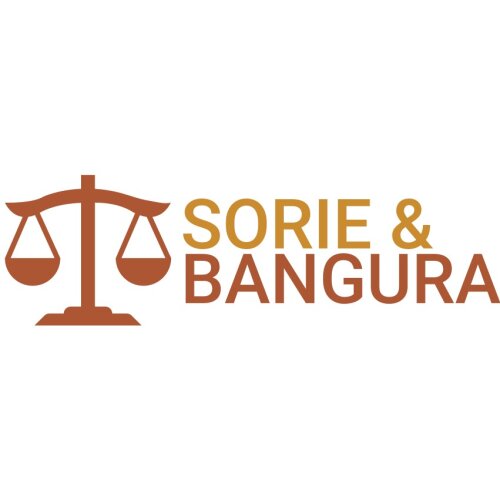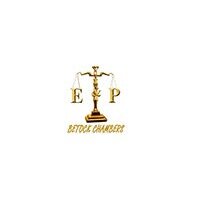Best Environmental Law & Compliance Lawyers in Sierra Leone
Share your needs with us, get contacted by law firms.
Free. Takes 2 min.
Or refine your search by selecting a city:
List of the best lawyers in Sierra Leone
About Environment Law in Sierra Leone:
Environment law in Sierra Leone focuses on protecting the country's natural resources, wildlife, and ecosystems. The government has implemented various regulations to prevent environmental degradation and promote sustainable development.
Why You May Need a Lawyer:
You may need a lawyer for various reasons related to environment law in Sierra Leone, such as disputes over land ownership, pollution issues, wildlife protection, or compliance with environmental regulations. A lawyer can help you navigate the legal system and protect your rights in environmental matters.
Local Laws Overview:
Sierra Leone has several laws and regulations related to the environment, including the Environmental Protection Agency Act, the Mines and Minerals Act, the National Protected Areas Authority Act, and the Wildlife Protection Act. These laws govern environmental impact assessments, waste management, land use planning, conservation efforts, and more.
Frequently Asked Questions:
1. What are the main environmental issues in Sierra Leone?
Some of the main environmental issues in Sierra Leone include deforestation, soil erosion, water pollution, and inadequate waste management.
2. Do I need a permit for certain environmental activities?
Yes, certain activities, such as mining, logging, or waste disposal, may require a permit from the relevant government authority.
3. What can I do if my land is being polluted by a neighboring business?
You can seek legal assistance to hold the polluting business accountable and seek compensation for damages to your land.
4. How can I report environmental violations in Sierra Leone?
You can report environmental violations to the Environmental Protection Agency or the Ministry of Lands, Country Planning, and the Environment.
5. Are there any incentives for businesses to adopt environmentally-friendly practices?
Yes, the government of Sierra Leone offers incentives to businesses that implement sustainable and environmentally-friendly practices, such as tax breaks or subsidies.
6. Can I sue the government for failing to protect the environment?
Yes, you can take legal action against the government if it fails to enforce environmental laws or regulations effectively.
7. What are the penalties for violating environmental laws in Sierra Leone?
The penalties for violating environmental laws in Sierra Leone can include fines, imprisonment, or the suspension of permits or licenses.
8. How can I learn more about environmentally-friendly practices in Sierra Leone?
You can contact the Environmental Protection Agency or local environmental organizations for information on sustainable practices and conservation efforts in Sierra Leone.
9. Are there any specific regulations for protecting wildlife in Sierra Leone?
Yes, the Wildlife Protection Act of Sierra Leone establishes regulations for the conservation and protection of wildlife species in the country.
10. How can I find a reputable environmental lawyer in Sierra Leone?
You can ask for recommendations from other professionals in the legal field or contact the Sierra Leone Bar Association for referrals to experienced environmental lawyers.
Additional Resources:
For more information on environment law in Sierra Leone, you can visit the Environmental Protection Agency website or contact the Ministry of Lands, Country Planning, and the Environment.
Next Steps:
If you need legal assistance in environmental matters in Sierra Leone, consider consulting with an experienced environmental lawyer who can guide you through the legal process and protect your interests. Be sure to gather any relevant documentation and information before meeting with a lawyer to discuss your case.
Lawzana helps you find the best lawyers and law firms in Sierra Leone through a curated and pre-screened list of qualified legal professionals. Our platform offers rankings and detailed profiles of attorneys and law firms, allowing you to compare based on practice areas, including Environmental Law & Compliance, experience, and client feedback.
Each profile includes a description of the firm's areas of practice, client reviews, team members and partners, year of establishment, spoken languages, office locations, contact information, social media presence, and any published articles or resources. Most firms on our platform speak English and are experienced in both local and international legal matters.
Get a quote from top-rated law firms in Sierra Leone — quickly, securely, and without unnecessary hassle.
Disclaimer:
The information provided on this page is for general informational purposes only and does not constitute legal advice. While we strive to ensure the accuracy and relevance of the content, legal information may change over time, and interpretations of the law can vary. You should always consult with a qualified legal professional for advice specific to your situation.
We disclaim all liability for actions taken or not taken based on the content of this page. If you believe any information is incorrect or outdated, please contact us, and we will review and update it where appropriate.
Browse environmental law & compliance law firms by city in Sierra Leone
Refine your search by selecting a city.












